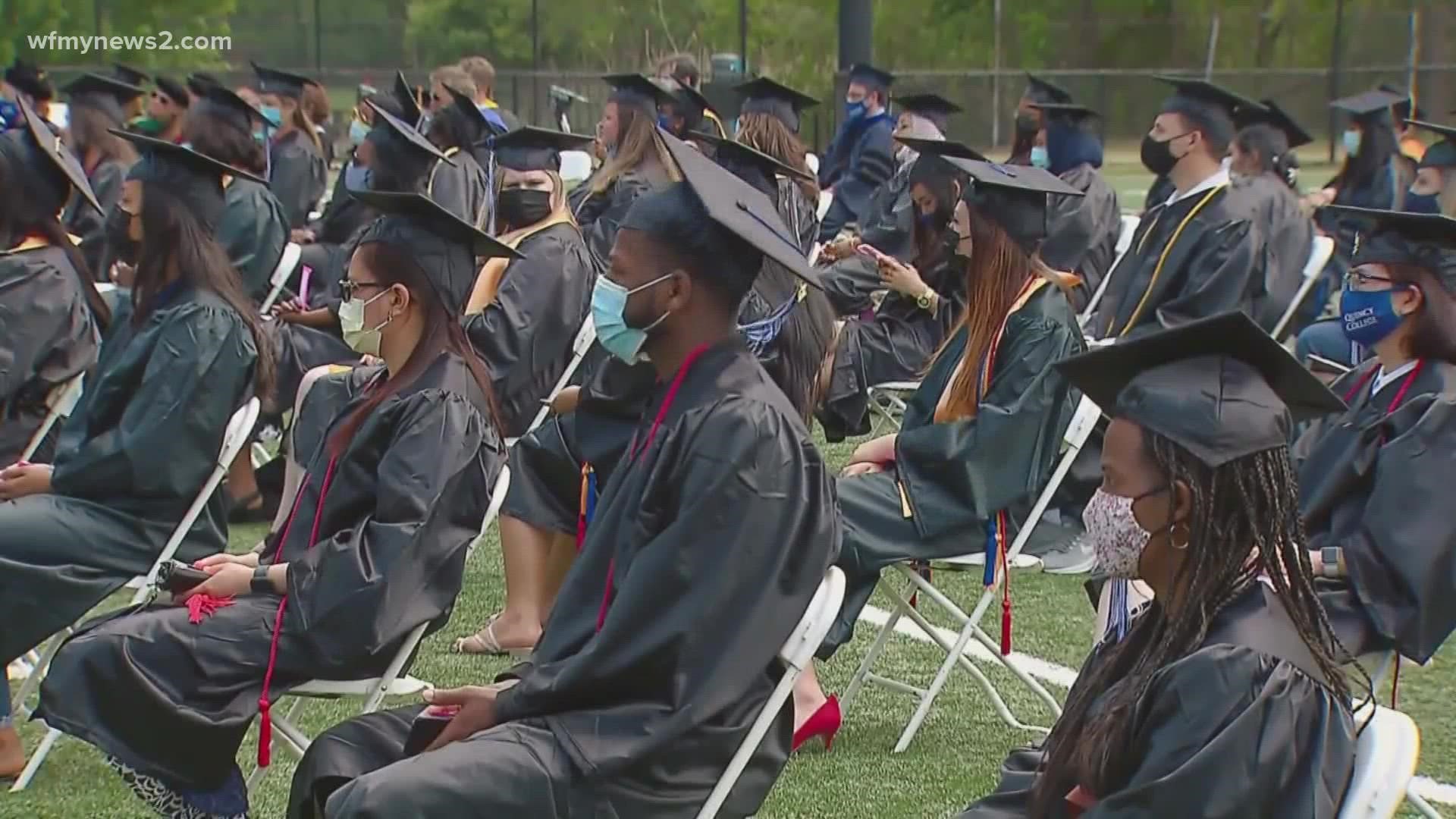GREENSBORO, N.C. — The U.S. Department of Education said at least 40,000 Americans will get their federal student debt canceled, and an additional 3.6 million will get some relief.
That's welcome aid for those borrowers. It leaves out the vast majority of those with student debt. The Education Data Initiative said 40 million American adults have federal student loans. The amount borrowed totals $1.6 trillion.
The latest move from the White House targets people that meet a certain criteria. Those who will get their debt canceled fulfill each of these requirements:
- They are part of the Public Service Loan Forgiveness Program.
- They work full-time for their federal, state, local or tribal government or a non-profit.
- They have made at least 120 on-time payments.
- They have Direct Loans
- They repay their loans through an income-driven repayment plan (IDR).
The 3.6 million getting relief will receive at least three years of credit toward IDR forgiveness.
The Department of Education didn't specify what qualifications those 3.6 million borrowers have to meet to receive some debt relief, but the relief will go to borrowers who've been on an IDR plan.
Rep. Alma Adams (D-NC12) said she supports the move and wants to see even more action taken.
"As we approach the summer months, I am continuing to call on the president to finish the job by canceling up to $50,000 of student loan debt across the board for our struggling borrowers because we must crush that debt before it crushes our economy," Adams said in a statement her office sent WFMY News 2.
There's growing pressure on President Joe Biden to cancel student debt altogether from some democratic lawmakers.
Rep. Virginia Foxx (R-NC05) is one of several Republicans in Congress who doesn't support the relief plan.
"A program that was the brainchild of, and expanded by, democrats, turned out to be a complete disaster and taxpayers are forced to foot the bill for these mistakes," Foxx said in a statement.
"It is shameful this administration keeps putting politics above the interests of the American people," Foxx continued.
Other Republicans took legislative action to try to end the current student loan payment pause. Some lawmakers filed the "Federal Student Loan Integrity Act" last March. The bill would end the current payment pause, limit the Education secretary's ability to issue other freezes, and prevent a future forbearance from stopping interest accrual.
One big issue some lawmakers have with the current payment freeze is the cost to taxpayers. The Dept. of Education's 2021 fiscal report found the pause has cost at least $95 billion. That comes out to about $4.5 billion each month. That figure is more than the budgets for the cities of Greensboro, High Point, Winston-Salem, Raleigh, and Charlotte.
Right now, all student loans are paused until at least Aug. 31, and interest cannot accrue on those debts.
If you do not qualify for the latest loan forgiveness plan, financial analysts said you should start looking for payment options now before the freeze ends.

